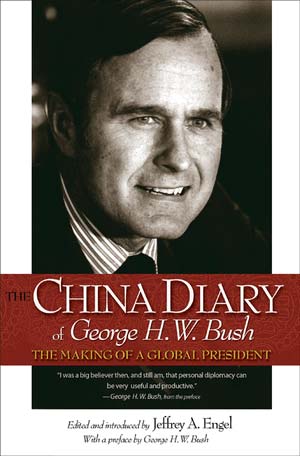 One week ago, George Bush told the Israeli Knesset that those who would negotiate with “terrorists and radicals” are akin to appeasers of the Nazis. It was a clear jab at Barack Obama and his stated willingness to sit down with leaders of rogue states. John McCain later echoed Bush.
One week ago, George Bush told the Israeli Knesset that those who would negotiate with “terrorists and radicals” are akin to appeasers of the Nazis. It was a clear jab at Barack Obama and his stated willingness to sit down with leaders of rogue states. John McCain later echoed Bush.
Forget the fact that Bush once offered to sit down with the president of Sudan, Lt. Gen. Omar Hassan al-Bashir. Forget that Israel is now negotiating with a rogue state, Syria. Forget that James Baker, a man John McCain once called “the smartest guy know,” said in 2006 that negotiation isn’t capitulation.
This may best all of those in the irony department. On the cover of a new book titled “The China Diary of George H. W. Bush: The Making of a Global President,” edited by Jeffrey A. Engel, our 41st president is quoted as saying, “I was a big believer then, and still am, that personal diplomacy can be very useful and productive.” That’s not a quote from the diary, which covers Bush’s time as the head of the United States Liaison Office in Beijing from 1974 to 1975. It’s from a preface Bush penned specifically for this book.
In that preface, written in October 2007, Bush points approvingly to President Nixon’s willingness, in 1972, to be “the first American leader to speak directly with his Chinese counterpart, Mao Zedong.” The young Bush chose to go China, instead of London or Paris, in part because relations with China were still new. He could not formally be an ambassador because “we still did not have formal diplomatic relations with Beijing.”
He cites the personal relationship he cultivated with Deng Xiaoping in the 1970s as an asset in his presidency. “I took some hits for not being tougher on the Chinese,” he writes, “but my long history with Deng and the other leaders made it possible for us to work through the crises without derailing Sino-American relations, which would have been a disaster. I was a big believer then, and still am, that personal diplomacy can be very useful and productive.” At no point in the preface does Bush object to establishing relations with a tyrannical regime. Presumably his son, and the current Republican presidential candidate, would disagree.












